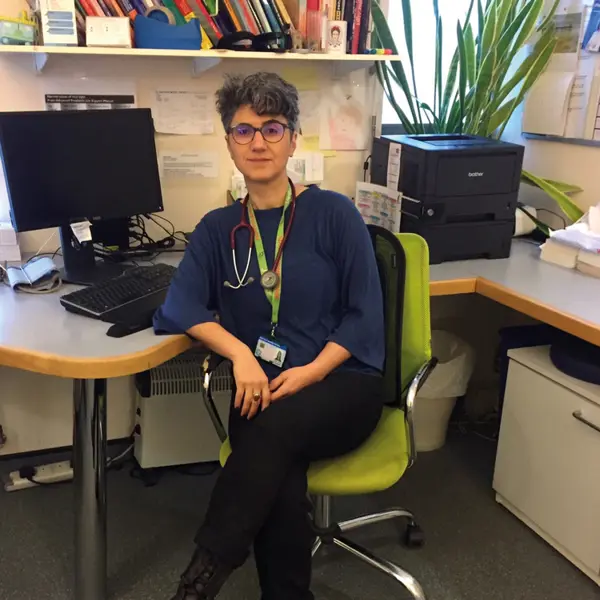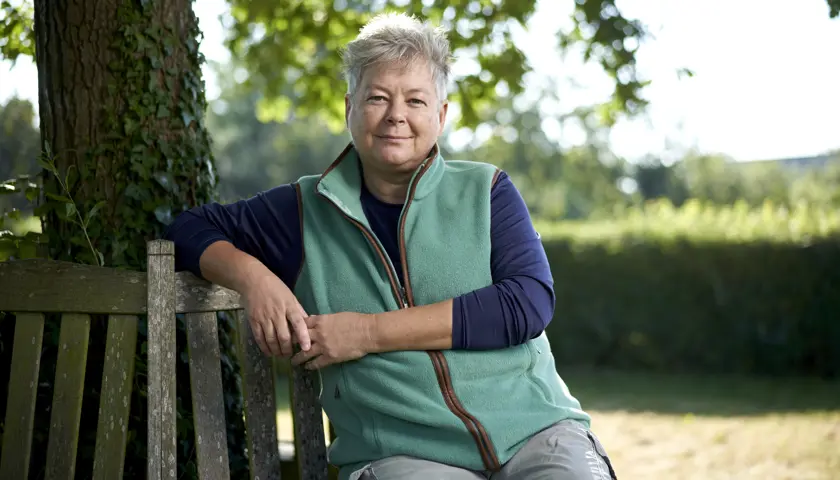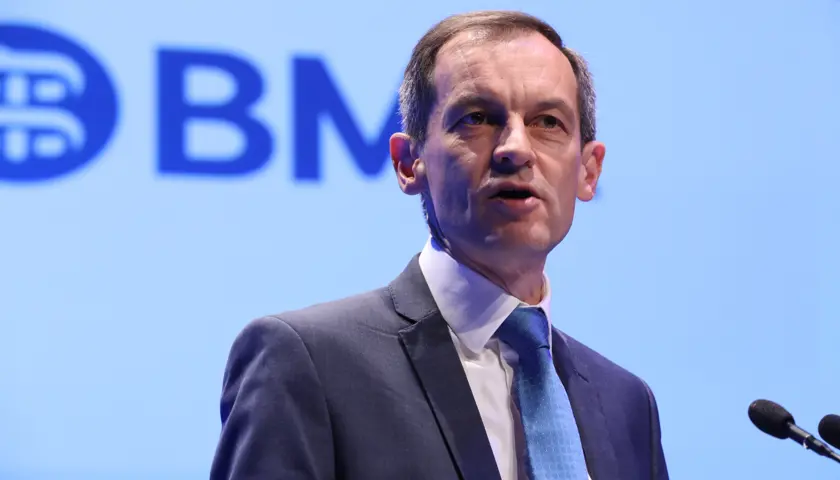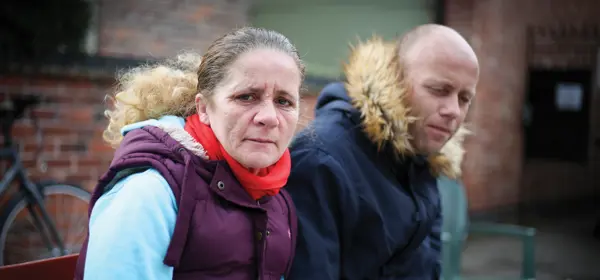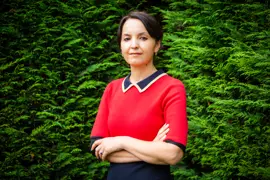
The Afghan refugee crisis: ‘It’s not fair and I can help’
When hundreds of Afghan refugees arrived in the UK, GPs took the initiative, visiting them, reassuring them and providing immediate medical care. Now the Government needs to step up too
Zohra Karim packed her doctor’s bag and prescription pad and drove the one hour and 10 minutes from her house to Heathrow.
It meant leaving her family on her husband’s birthday, but she needed no convincing that it was the right thing to do.
The north London GP had heard that between 600 and 800 Afghan refugees – people who had been plucked from their lives, shepherded on to overcrowded aircraft and transported some 3,500 miles to the UK – were being housed in airport hotels southwest of London.
Dr Karim had phoned one of the hotels, informed them she was a GP working in the UK, originally from Afghanistan – and that she spoke Pashto and Farsi, two of the common languages in the country.
Within 10 minutes she had received ‘so many’ calls from the paramedic staff working at the hotel asking for help that she left straight away, telling her family: ‘It’s not fair and I can help.’
It wasn’t just about the medical assistance, it was about reassuring them and telling them it will be fine
Dr Karim
I’ve never seen such a huge crisis,’ Dr Karim says. ‘You are talking about up to 800 people per hotel. There was one woman with nine children there.’
Dr Karim, who was at the hotel until midnight and went straight back the next day, moved from room to room – assessing and prescribing as she went along.
Some of the experiences were moving, and tragic: seeing a 12-year-old boy who was so malnourished he looked six, and speaking to one woman who had seen several deaths during a violent attack.
‘She saw the bodies of lots of children. She said that was something she can’t get out of her head,’ says Dr Karim. There were pregnant people and others who needed assessing for aches and pains.
But many of those who found themselves in this strange and foreign country just wanted to talk. ‘It wasn’t just about the medical assistance, it was about reassuring them and telling them it will be fine,’ Dr Karim says.
‘There were a few young girls. I told them I came here like you, I have a job and a nice life. This is an opportunity if you work hard. You will get there, I told them that.’
Gratitude and relief
Roghieh Dehghan is a GP in London with expertise in care for refugees and asylum seekers, and went to the Heathrow hotel with Dr Karim.
Dr Dehghan had heard lots of stories about ‘the horrors’ people had seen but didn’t find patients in desperate distress on the whole.
‘I found a relatively healthy population,’ she says.
‘And I thought I would see people bereft but that wasn’t my experience. If anything, what surprised me was most of them were grateful for being here and there was this sense of relief.
‘What was most important was that people wanted to share their story – they wanted to tell you their experience.’
Dr Dehghan, who is originally from Iran and heard grateful stories about help received from UK newspaper editors and army personnel, says, however, that those providing care in the coming weeks and months may have to be wary – as there is often a ‘honeymoon phase’ when it comes to these experiences.
‘When they arrive, that is usually the happiest period,’ she says. ‘That PTSD may come later.’
At the Heathrow hotels Dr Karim and Dr Dehghan’s efforts had been part of no organisation or structure.
The care these Afghan evacuees received was entirely thanks to the compassion of their doctors, who worked without the backing of a CCG (clinical commissioning group) and with no confidence over their medical indemnity.
The powers that be had simply arranged security guards and private paramedics, with no particular links to Afghanistan, who ‘didn’t have basic assessment equipment’ to hand.
The London GPs had been in touch with health leaders urging them to put support systems in place and to empower them to help and gather others to help.
The responses – responses like ‘this isn’t your job’ – arguably paint Government and NHS leaders in a particularly unflattering light
‘A mass of humanity’
The phrase ‘postcode lottery’ is often heard when it comes to the health service and patchy provision in many areas of care.
For the Afghan evacuees arriving in the UK it was to be a swift introduction to the notion. While in many areas, such as Heathrow, care came largely from solo volunteers breaking down barriers to help, in others The Doctor has found coordinated and significant efforts to respond to the health and social care needs of these newest members of their communities.
The decisions were made in Luton and Milton Keynes on the Thursday before the August bank holiday, with 800 Afghan evacuees due to arrive in three hotels in a matter of hours.
A meeting was held with NHS England and their regional team, the local authorities and the providers of healthcare in the area.
A critical incident was declared and GP, and CCG chair, Sarah Whiteman sprang into action alongside her dedicated colleagues.
‘We realised the people arriving were likely to have significant health and social care needs which were, we felt, clearly not going to be met by an onsite ambulance technician or healthcare assistant,’ Dr Whiteman tells The Doctor.
Dr Whiteman posted about the situation on a WhatsApp group – ‘called something slightly embarrassing like “medics who mocha” – and the response was overwhelming.
‘It seemed to unite something and all of a sudden people from all over the country were volunteering to help us over the bank holiday weekend in whatever way they could,’ she says.
The scenes at three of Luton and Milton Keynes’ most unremarkable hotels that weekend were far from unremarkable.
Piled high in the areas where guests would usually have read the morning papers, had breakfast, or attended conferences were the sprawling signs of human need: supermarket shopping bags full of donated clothes, colouring books and toy diggers in hastily organised piles and boxes stuffed full of basic medicines and equipment like asthma spacers.
All of a sudden people from all over the country were volunteering to help us
Dr Karim
The scenes hinted at the scale of the volunteer effort from the local community and across the country and the pace at which local health leaders mobilised whatever response they could muster.
For Dr Whiteman, who visited all three hotels in her area during a 24-hour period, the experience was overwhelming.
There were experiences which were heartbreaking and others which were life-affirming.
From the rooms which were a ‘mass of humanity – with children playing and colouring’ – and the pregnant women whose newborns would have a new life, to the couple in their 20s who were looking after three young boys who were the sons of the brother and sister who had been shot in front of them.
Through compassionate tears Dr Whiteman says: ‘For me it was the first time I’ve ever been involved in anything like this. It was momentous and slightly life-changing really. These people were plucked out of an emergency situation.’
Logistical challenge
The evacuees were all seen and many have now been moved to other areas of the country.
Several doctors told The Doctor the process as run by the Home Office has been confusing and lacking communication – with people moved around the country often with little warning or explanation and others then moved into an area from a different part of the country.
It is a system which has presented great problems in terms of continuity of care and relationship building with patients.
These people were plucked out of an emergency situation
Dr Whiteman
In Luton and Milton Keynes there are at least 250 people in bridging hotels – and the majority are expected to live in the area.
Local GP surgeries have agreed to register them and Dr Whiteman and her team are committed to appealing for politicians and health leaders to empower them to put longer-term support plans in place.
‘We would like to set up a more formal response for the future,’ Dr Whiteman says.
‘There was an overwhelming emotional response to the voluntary effort and that was great, but the fact that it was needed shows we should formalise our response for the next time and stand up some proper support.
‘I think there would be a willingness to do that but obviously we need resource.’
We should formalise our response for the next time and stand up some proper support
Dr Whiteman
In the days after the first period of helping in the quarantine hotels Dr Whiteman and her colleagues held a virtual meeting for everyone involved to discuss next steps.
In an NHS where frontline staff so often face hierarchy, bullying and blame, the tone was almost shockingly kind and collaborative. Doctors and managers shared their emotions and stories, and their fears and anxieties about the future – and set about creating documents which would guide their efforts in future and look to build learning into everything they do.
Local health leaders have already begun to share their experiences and work with organisations from other parts of the country, but if this meeting is anything to go by there may be lessons to be learned beyond the practicalities of providing care for refugees.
The work in Milton Keynes and Luton shows the value general practice has – and the extraordinary lengths frontline staff will go to, to protect the vulnerable and help their communities.
BMA GPs committee chair Richard Vautrey says: ‘There are some excellent examples of dedicated services around the country that have been resourced by their local health systems to meet the specific and often complex needs of those who have fled from their home country and sought sanctuary and care in the UK.’
He adds that the BMA has recently supported the Doctors of the World toolkit, which provides guidance to practices on how they can register patients who may not have the usual documentation that many longer-term residents have.


